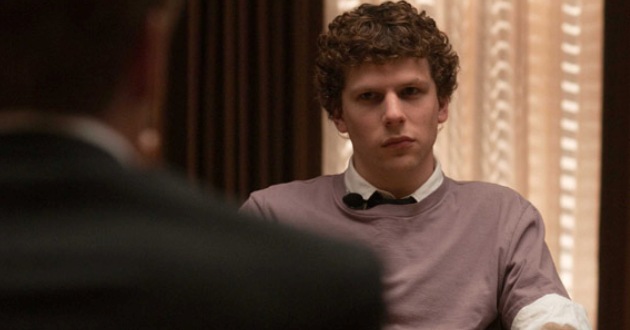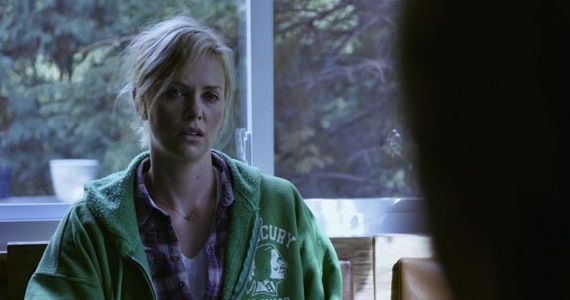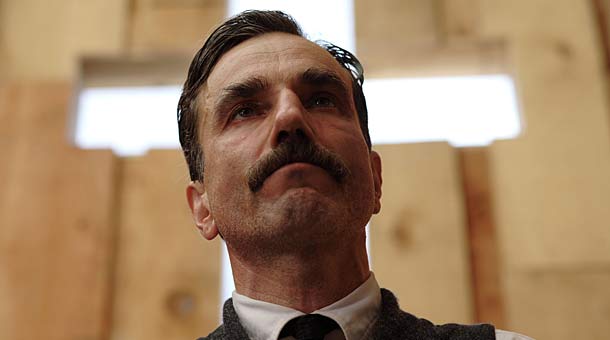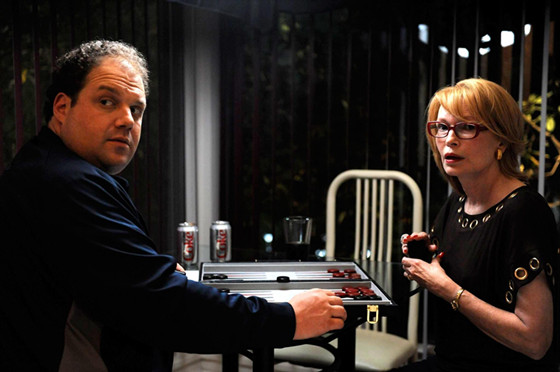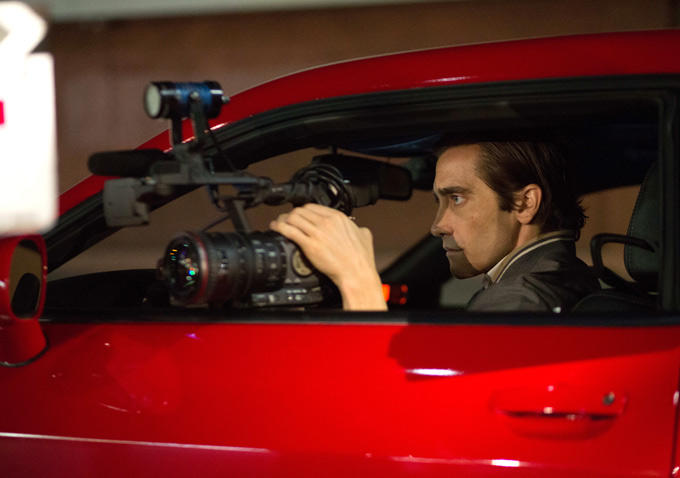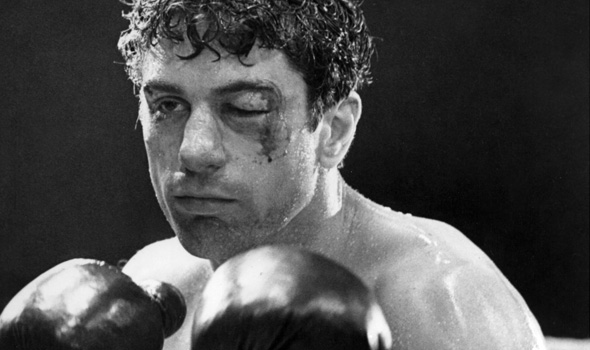17. Mark Zuckerberg – The Social Network (2010)
For a character who never physically hurts anyone, the protagonist of David Fincher’s portrayal of the contentious founding of the biggest social network in the world is awfully hard to like. Thankfully, the real Mark Zuckerberg is not as rotten as his on-screen persona (and yes, he has indeed weighed in on his cinematic counterpart), but Jesse Eisenberg manages to make us forget all that in his Oscar-nominated take on the youthful billionaire.
As is made clear in the opening scene depicting a disastrous date (future dragon tattoo-wearer Rooney Mara more than holds her own in the powerhouse conversation), the young Zuckerberg has his fair share of troubles. Never mind that his biggest problem is one he can’t see – namely, his inability to gracefully navigate the intricacies of normal social conventions – screenwriter Aaron Sorkin’s dense and polished dialogue sets the tone for everything that’s to come.
Factually accurate or not, the Mark Zuckerberg at the center of the film is a cold, seemingly emotionless individual who becomes less and less sympathetic as he amasses his obscene wealth. Basically, he’s Citizen Kane for the digital age.
16. Mavis Gary – Young Adult (2011)
Charlize Theron’s Mavis Gary earns her place on this list largely due to how little she changes by the film’s end. We gather through her conversations with other characters that she was pretty horrible in the past, but Mavis, now making a living as a passionless YA ghost writer, is the epitome of selfish here as she makes her way back to her Minnesota hometown to try and rekindle her relationship with her high school boyfriend, Buddy (Patrick Wilson)… who is now married… and just had a baby.
Her tearful monologue at the film’s climax helps humanize her and make us understand her motivations a lot better, but gaining a clearer window into the mindset of a terrible person doesn’t make that person any less terrible.
While director Jason Reitman seems to have stumbled a bit with his last few films, his efforts here, combined with a sharp and realistic script by Diablo Cody (her first collaboration with Reitman since Juno) are successful. Mavis, dubbed “psychotic prom queen bitch” at one point, is no doubt a disturbingly familiar character for many viewers, making her all the more unlikable, no matter how well we seem to know her by the movie’s conclusion.
15. Daniel Plainview – There Will Be Blood (2007)
Here you simply have Daniel Day-Lewis performing at the height of his acting powers. With a bushy moustache one could believably refer to as “confident” and a piercing set of eyes that effortlessly convey his disdain for those around him, his Daniel Plainview commands our attention from start to finish (especially impressive given the extended dialogue-free sequence with which this film – another striking example from P.T. Anderson – opens).
As a fictional early 20th century prospector, Plainview allows his greed to destroy whatever humanity he had in the first place. From his treatment of his adopted son to his final showdown with Eli, the fanatical preacher played by Paul Dano, Plainview reveals himself as a ruthless fiend whose heart is as black as the oil he mines.
The dissonant and creepy score by Radiohead’s Jonny Greenwood proves to be a surprisingly appropriate complement to the tonal horror of the story hinted at in the ominous title.
14. Samuel Bicke – The Assassination of Richard Nixon (2004)
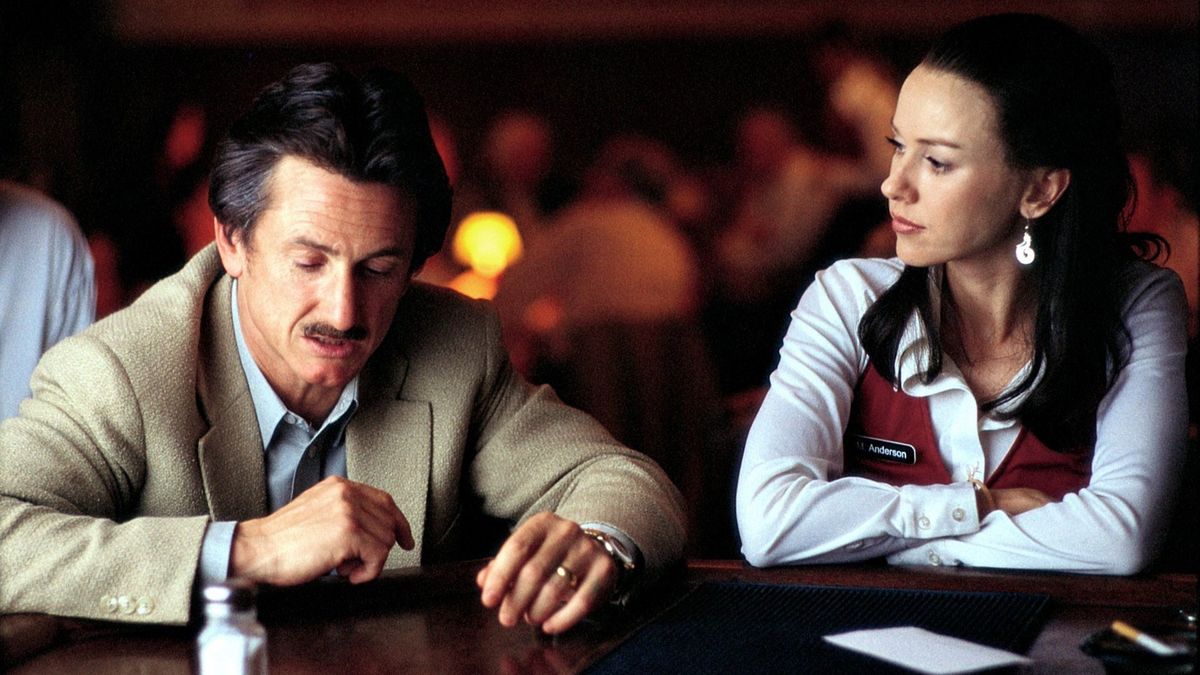
More of a tragic character study than anything else, Niels Mueller’s 2004 film focuses on a man who could, without much debate, be called one of the biggest losers in film history. This may sound harsh, but our feelings for the guy become increasingly negative and less understanding over the course of the film.
Played marvelously by Sean Penn, Bicke is based on the real life would-be assassin of the same name (but different spelling), whose 1974 attempt to kill then-President Nixon by hijacking an airplane and crashing it into the White House is only more eerie in retrospect.
Divorced, struggling at work, and behind on the rent, Penn’s Bicke blames everyone – eventually including the president of the country – but himself for his misery. His efforts to resolve his difficulties range from the unlikely to the downright bizarre (though white, he tries to join the Black Panthers because he relates to their views regarding societal power struggles).
And while he obviously fails at his goal that gives the film its title, he does manage to take some innocents with him, including the family dog. There goes the audience’s last shred of sympathy…
13. Travis Bickle – Taxi Driver (1976)
In Martin Scorsese’s cinematic portrait of the ugliness with which many used to associate New York City, Robert De Niro’s paranoid loner seems almost too real. Screenwriter Paul Schrader has since revealed that Travis Bickle was largely inspired by his own experiences living in L.A., during which time he went lengthy periods without talking to anyone and became drawn to guns and porn (thankfully, Schrader’s story ended quite differently than Travis’s).
Narrated by the progressively detached Travis and infused with a suitably haunting score by Bernard Herrmann (which would turn out to be his last), the film is still relevant today for the way it captures the pain of isolation and social rejection – both of which can exacerbate existing problems for a man like Travis, who is functional but pretty clearly mentally unstable from the beginning. His situation can best be summed up in the cringeworthy scene in which he calls up a woman he offended on their last date.
Scorsese calls the shot in which not even the camera can bear to continue looking at him, moving instead to survey an empty hallway, the most important one in the film.
We feel bad for Travis, sure, but we can also admit that he should probably be institutionalized, or at the very least medicated, as his grip on reality deteriorates and he begins to express a keen interest in firearms…
12. Abe Wertheimer – Dark Horse (2011)
The protagonist of Todd Solondz’s dramedy is neither a killer nor a criminal – he’s just a whiny, petulant, entitled, lazy, spoiled, thirty-something-year-old man-child. Of everyone on this list, he might very well be the most recognizable, plausible-seeming person, which only increases his unlikability.
As the film’s protagonist, Abe still lives at home and works (poorly, at that) for his father (Christopher Walken). After meeting the damaged Miranda (Selma Blair) at a wedding, Abe becomes smitten with her. Their unlikely relationship takes up the bulk of the film’s running time, though the presentation of events toward the end of the film blurs the line between what is and is not actually happening.
It’s a characteristically grim and darkly comic film from Solondz, whose best works (Happiness, Welcome to the Dollhouse) are far funnier and/or more shocking than anything here. Abe is just so insufferable, so aggressively off-putting, that he nearly ruins the film (which, to be fair, is kind of a credit to star Jordan Gelber).
11. Lou Bloom – Nightcrawler (2014)
Ignore the Academy – this is Jake Gyllenhaal’s best performance to date. In a film that makes your average paparazzo look ethical by comparison, Gyllenhaal plays an ambitious and skinny (he reportedly lost twenty pounds voluntarily for the role) low-life who pursues a career as an amateur videographer of accidents and crime scenes.
Rarely blinking and always ready with a plethora of canned aphorisms, Bloom is downright scary as the loathsome parasite the title evokes. The character’s versatility, intelligence, and ability and willingness to manipulate make him all the more frightening.
Unlike in similar thrillers, the story never betrays the audience’s trust or demands a suspension of disbelief, instead slowly building until it culminates in an epic chase sequence that is set up flawlessly. Dan Gilroy’s directorial debut (he also wrote the screenplay) achieves everything it sets out to and then some, largely as a result of Gyllenhaal’s mesmerizing performance. This may be the youngest film on this list, but it is without a doubt one that will be remembered for years to come.
10. Brandi Boski – Stuck (2007)
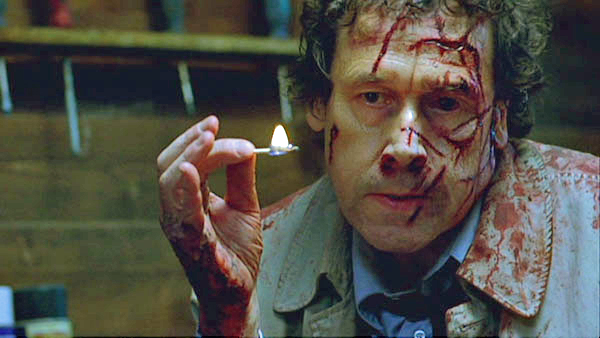
The reason the premise of this horror movie might sound familiar is that it’s sadly based on a true story that went in and out of the news fairly quickly. Mena Suvari plays Brandi, a retirement home worker who, drunk and high on Ecstasy one night, hits a man (Stephen Rea) with her car, only to drive home with the poor guy still stuck in her windshield like a bug. The heartless monster that she is, she leaves him to bleed to death in her garage while she has sex with her boyfriend.
The real-life Texas woman whose 2001 crime inspired the film ended up getting fifty years in prison for what she did, and though things turn out a bit differently here, the basic element of absolute callousness remains. It’s easy to see why the panicked Brandi, worried about how the incident could derail her career, behaves the way she does, though that hardly exculpates her.
Suvari keeps us rooting against her the whole time – a testament to her acting – and is no less hateable than in the moment when she actually insists that SHE is the real victim. Director Stuart Gordon (Re-Animator) uses occasional humor to keep the tone from becoming too morose, though there’s no diluting the non-supernatural horror on display here.
9. Jake LaMotta – Raging Bull (1980)
Martin Scorsese’s powerful black-and-white biopic of the former world middleweight boxing champion Jake LaMotta is an artfully made portrait of a great athlete, but a hideous person. Famously training with the real LaMotta and later gaining sixty pounds (a record at the time) to portray the boxer in his later years, Robert De Niro gives a truly authentic performance that deservedly won him the Oscar.
Of course, this is a warts-and-all representation, so the brutally honest depiction of the self-destructive LaMotta includes all his paranoid, wife-beating tendencies, which caused LaMotta’s brother, played by Joe Pesci in the film, to sue.
LaMotta, who the film portrays as his own worst enemy, is said to have only realized how awful he really was after seeing the movie. Today, it’s a film we watch to marvel at the superb cinematography and Oscar-winning acting and editing, while also despising the title subject at the same time.
